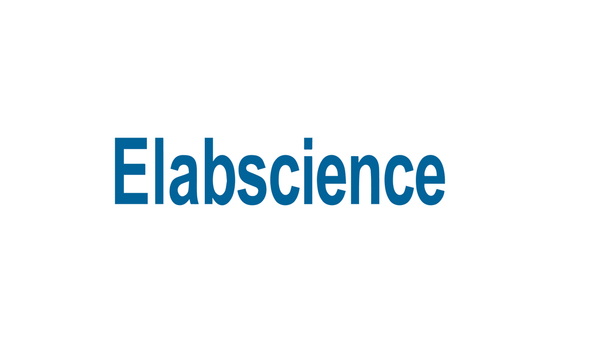Elabscience
Recombinant 2019-nCoV NSP1 Protein (His Tag) | 763-PKSR030467
- SKU:
- 763-PKSR030467
- Availability:
- IN STOCK
Description
Recombinant 2019-nCoV NSP1 Protein (His Tag) | PKSR030467 | Elabscience.
Synonym: SARS-CoV 2 nsp1; SARS-CoV 2 Leader protein
Activity: N/A
Protein Construction: Recombinant 2019-nCoV NSP1 is produced by our E.coli expression system and the target gene encoding Met1-Gly180 is expressed with a 6His tag at the C-terminus.
Sequence: Met1-Gly180
Fusion tag: C-6His
Accession: YP_009725297.1
Species: SARS-CoV-2
Expressed Host: E.coli
Shipping Conditions: This product is provided as liquid. It is shipped at frozen temperature with blue ice/gel packs.Upon receipt, store it immediately at<-20°C.
Purity: > 85 % as determined by reducing SDS-PAGE.
Endotoxin: < 1.0 EU per µg as determined by the LAL method.
Stability and Storage: Store at < -20°C, stable for 6 months. Please minimize freeze-thaw cycles.
Mol Mass: 22.7 kDa
AP Mol Mass: 25 kDa
Formulation: Supplied as a 0.2 μM filtered solution of 20 mM Tris-HCl, 150 mM NaCl, 10% Glycerol, pH 8.5.
Reconstitution: Not Applicable
Background: The Severe Acute Respiratory Syndrome (SARS) Coronavirus (CoV) is an enveloped, positive-stranded RNA viruses that can cause a severe respiratory disease. Its genome consists of a ∼30 kb linear, non-segmented, capped, polycistronic, polyadenylated RNA molecule, the first two-third of which is directly translated into two large polyproteins. These two polypeptides are processed into 16 non-structural proteins (nsps) , forming the replicase complex, which is active in the cytoplasm in close association with cellular membranes. Nsp1 was proved to be able to suppress host gene expression by promoting host mRNA degradation and was involved in cellular chemokine deregulation. This virus evades the host innate immune response in part through the expression of its non-structural protein (nsp) 1, which inhibits both host gene expression and virus- and interferon (IFN) -dependent signaling. Thus, nsp1 is a promising target for drugs, as inhibition of nsp1 would make SARS-CoV more susceptible to the host antiviral defenses.






